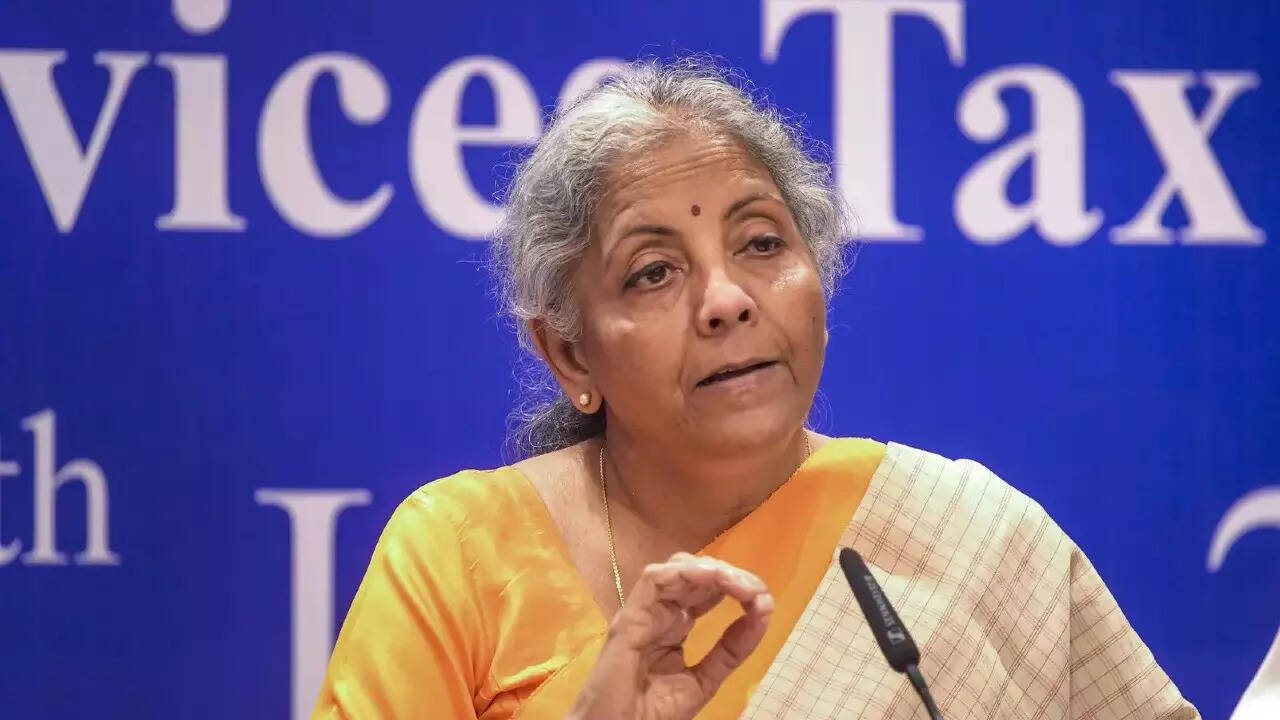
The Goods and Services Tax (GST) Council decided to decriminalise some violations and doubled the monetary threshold for launching prosecutions to ₹2 crore to prevent taxpayer harassment and improve ease of doing business.
The 48th GST Council meeting, held virtually on Saturday after a gap of six months, deferred a decision on imposing the levy on online gaming, horse racing and casinos as well as the setting up of appellate tribunals.
The council decided that GST will not be levied on no-claim insurance bonuses and approved a concessional rate of 5% on ethanol used for blending with petrol, against 18% earlier.
The council did not take up the proposal for a mechanism to curb tax evasion by pan masala and gutkha businesses.
Finance minister Nirmala Sitharaman said the council could decide on only eight of 15 agenda items due to paucity of time. “Pending items will be taken up at the next GST Council meeting,” Sitharaman said, adding that this will be an in-person one. “We are trying to take up the GST tribunal issue at the earliest possible.”
The council did not consider demands to reduce the GST rate on a host of items, including precious metals and components of battery energy storage systems.
No Tax Hike in Meeting, Says FM
“In this GST Council meeting, there has not been any tax increase on any item,” Sitharaman told reporters after the meeting. “Everything that has been done is to issue clarifications where ambiguity of interpretation prevails.”
The council also allowed a refund of GST paid to unregistered buyers in the event of cancellation of services, when the cancellation takes place after the period specified in law for the issuance of credit notes.
“This proposal is likely to provide relief to businesses though its implementation would likely take one, one-and-a-half years, as it would require amendment in state legislatures as well,” said Saurabh Agarwal, partner, indirect tax, EY. The council clarified the GST rate for SUVs with an engine capacity exceeding 1,500 cc and length exceeding 4,000 mm with a ground clearance of 170 mm or above. They will attract a 22% compensation cess.
It also clarified that incentives paid by the government to banks under the scheme for the promotion of RuPay Debit Cards and low-value BHIM-UPI transactions are in the nature of subsidy, and GST will not be levied on them.
Experts welcomed the move to decriminalise some offences, adding that the threshold could be higher. “While the increase in prosecution threshold was expected, it is necessary to gradually increase it further so only very serious, high-value cases are subjected to the rigours of prosecution,” said MS Mani, partner, Deloitte India.
Online Gaming
Revenue secretary Sanjay Malhotra said GST on online gaming and casinos was not discussed as the Group of Ministers (GoM) on the issue submitted its report only a few days ago, and it had not been circulated yet to the rest of the council. In its report, the GoM suggested 28% GST on the full value of the consideration, including the contest entry fee, paid by players without making a distinction between games of skill and games of chance. However, at the insistence of several members, the GoM was asked to reconsider some of the provisions. Despite deliberation, there was no consensus on the matter and the GoM has left it to the council to decide.
The GST Council has also proposed that mobile numbers and email addresses linked to the income tax permanent account number (PAN) be used along with biometric authentication for GST registration. It has also mooted a pilot for biometric-based Aadhaar authentication and risk-based physical verification of registration applicants in Gujarat to curb fraudulent signups.
The council granted in-principle approval for amendments in the GST law to allow unregistered suppliers and composition taxpayers to undertake the intra-state supply of goods through ecommerce operators. The change is likely to be implemented from October 2023. Details will be notified.
Also Read:
